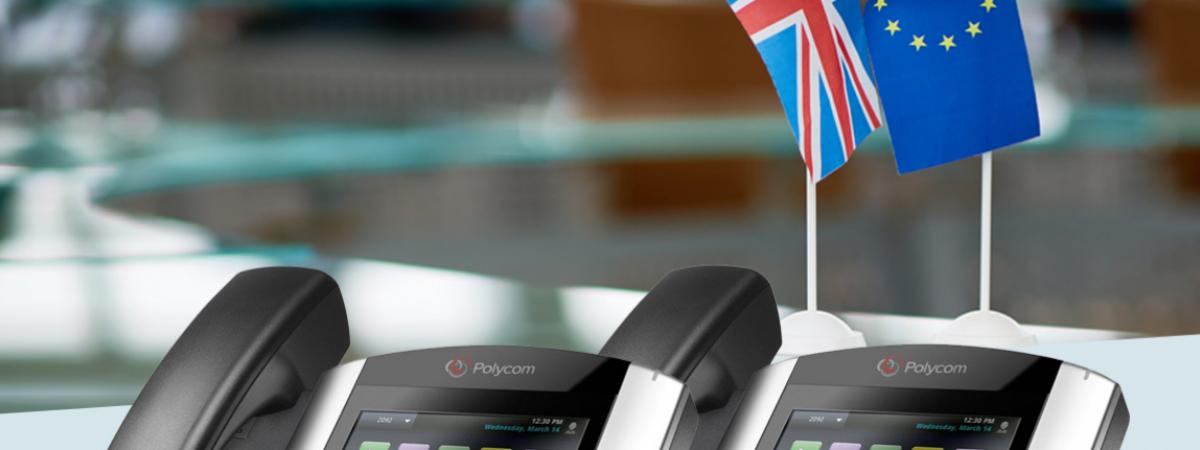
Brexit and the UK Telecoms Sector
The fallout from Brexit is far greater than any of us initially imagined it would be when we put a tick or cross in the 'Leave' or 'Remain' box. At no stage did any of us stop to consider that things like GDPR would be different. Neither did we envisage we'd be paying customs tariffs for goods or services bought and paid for within the EU (unless in Northern Ireland which remains part of the EU in terms of the trading of goods and services).
In fact, if we knew then what we know now, we'd likely still be a part of the whole EU set up!
But in all of this change, the Competition and Markets Agency (CMA) has remained focused on ensuring that consumers continue to get a "good deal" when buying goods and services, including trading within the telecoms industry.
A Themed Approach from the CMA
The CMA has pledged to focus on a number of themes that will form part of the UK's post-Brexit digital marketing strategy. These include:
- Supporting the UK economy by fostering competition to promote innovation, productivity and growth; and
- Taking place as a global competition and consumer protection authority and assuming new responsibilities after the EU Exit transition period
The CMA has even gone so far as to set up a 'Digital Markets Unit' with the objective of getting closer to the needs of consumers, underpinning it with a bespoke Digital Market Strategy.
All of us interact with the digital economy in some way or another. Whether it's shopping or banking online, the CMA pledges to "build expertise in this area" and "play their part in meeting the demands of the digital economy".
Counting the digital cost, Brexit or no-Brexit
As a business owner, you'll be paying for either business Wi-Fi or business broadband, certainly if you want access to the internet or any information held online. And let's face it, who can trade without it? You may even be paying for a Leased Line for business if you need high speed business connectivity or you trade from an area where business broadband connectivity is relatively weak.
But when you search for digital information, looking for anything from products and services to the answers to your deepest, darkest questions, you think you're searching for free. There's no cost to digital activity over and above the cost of your business broadband, right?
Well think again. There is a cost involved - but it doesn't come with £££.
Everyone of us uses digital platforms as part and parcel of our daily lives. Aside from the cost of business Wi-Fi or business broadband, when it comes to counting the digital cost it looks like it's entirely free. But we do in fact pay for these searches and the information that's available at our disposal.
We pay through data - as in personal data that's handed to advertisers on a plate.
That's where the CMA comes into play. That's also why it has pledged to support the UK's digital market with a dedicated strategy that watches closely how this data is handled.
As well as an abundance of other responsibilities, it's the CMA's job to consider the way these platforms both use and collect our data and whether we have consented to it. In addition to that, whether giving this data to advertisers actually produces a fair outcome for all of us.
Digitisation has taken off at neck-breaking speeds and there's no going back. But recent reports have pointed to a real need to reform regulation in this area. Hence why the CMA is working with international partners in relation to these issues.
It's about balancing competition while protecting consumer interests.
Brexit and the Telecoms Sector
The telecoms sector isn't just about providing network connections that give you access to digital information. It's about state of the art telecoms equipment. It's about the infrastructure that supports its use in business connectivity and electronic communications.
The UK telecoms sector provides various methods of network connectivity from business phone systems to wireless 5G broadband. In the UK it employs around 190,000 people and contributed £32 billion to the UK economy in just 2017 alone.
In short, it's worth its weight in gold. Literally...
But when it comes to post-Brexit activities, internet-based telecoms firms have to respond to increased regulatory demand. According to Deloitte, now that the UK has officially left the EU it has lost the oversight of the European Commission and the Body for European Regulation of Electronic Communications (BEREC).
The UK's Broadband Stakeholder Group has called for a new oversight organisation (a bit like the CMA) to be assigned a governance role for the industry, so it can focus on how its relationship with BEREC will change, and how it will forge new relationships with new stakeholders.
Both the EU and UK have already made commitments with the World Trade Organisation (WTO) under the General Agreement on Trade in Services and additional obligations under the Telecommunication Services Reference paper. These commitments allow the cross-border transmission of telecoms services, foreign direct investment in existing companies, and the establishment of new companies, and competition in basic telecommunications.
Yes, it really is as complicated as it seems.
The Telecoms Supply Chain post-Brexit
As telecoms firms rely heavily on imported materials and components, leaving the European Union has brought about the potential to significantly disrupt the supply of goods coming in from both the EU and non-EU countries.
Additional costs are a major cause for concern, with a number of other underlying issues, like:
- Limited access to suppliers
- Additional customs tariffs
- Increased import/export declarations and paperwork
- The impact of transport and border delays
- Complexity of new non-EU contracts with suppliers
And if that's not enough, heightened administrative tasks in the back office, as well as training staff to deal with these new processes, clearly and transparently!
Suppliers of telecoms equipment may also need to secure EU authorisation to be able to continue to supply the EU market with telecoms products.
So, while the CMA is actively supporting healthy competition and focusing on a digital strategy that 'assumes new responsibilities post-Brexit', the critical issues still remain: Customs checks, border controls, new tariffs, implementing revised business procedures, drafting new paperwork and contracts and renegotiating pricing - so it's all a bit of a headache.
But at the size and scale of a telecoms industry that brings in billions in UK revenue, it's a headache that is going nowhere fast.



